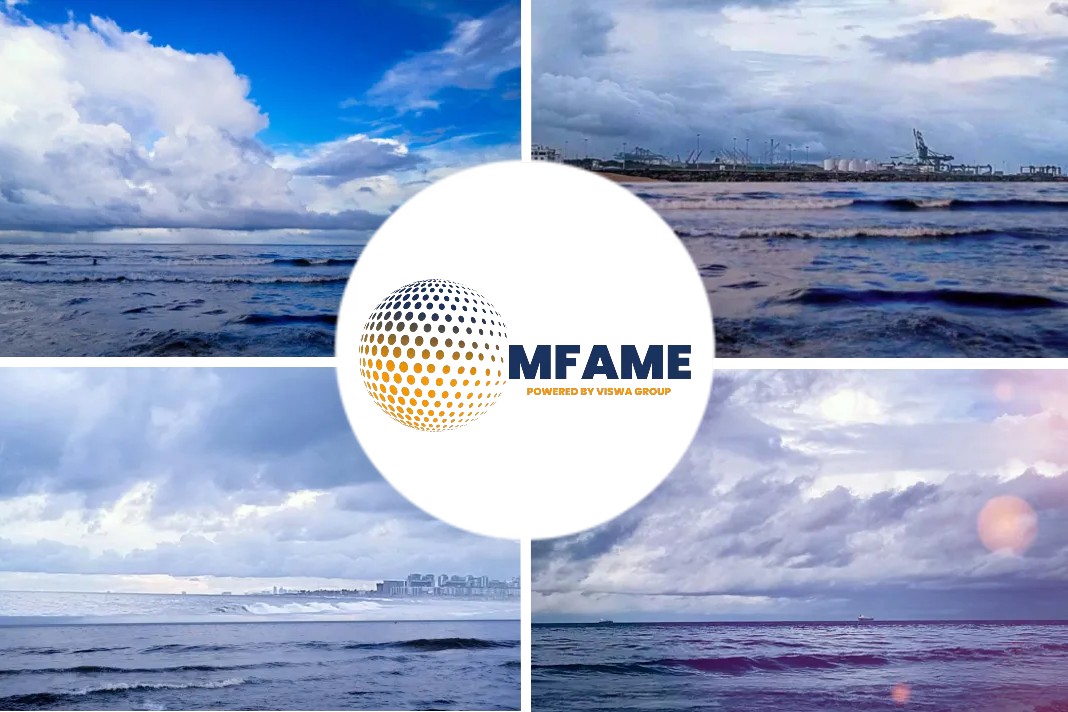According to South African maritime authorities, Emergency rescue and oil spill response teams are on standby to assist a large crude carrier off Port St Johns on the Eastern Cape coast, reports Talkofthetown.co.za.
What happened?
The 333m-long supertanker Yuan Hua Hu ran into trouble near Port St Johns on the Eastern Cape coastline earlier this week while sailing from Singapore to Angola.
Emergency rescue and oil spill response teams are on standby to assist the crippled Chinese crude oil tanker that narrowly missed being wrecked on the Wild Coast because of engine problems.
No immediate risks
The SA Maritime Safety Authority (Samsa) said on Thursday that a standby salvage tug from Durban had the oil tanker under “static tow”and there were no immediate risk to the safety of the crew, the ship or marine environment.
How does “Static tow” help?
Samsa deputy chief operations officer Capt Vernon Keller said the tanker had its front anchor line deployed to the sea bed while its stern was secured by cable to the African Marine Solutions (Amsol) salvage vessel Siyanda.
This was to help ensure that that it was not blown ashore or swung around by swells or wind along a stretch of coastline notorious for rough weather and numerous shipping accidents and drownings over the centuries.
Larger rescue tug on the way
Keller said that though the Siyanda had the tanker secured for now, a much larger rescue tug, the Pacific Dolphin, had been deployed from Cape Town and was due to arrive at the scene early on Saturday.
The Siyanda
The Siyanda is rated for 90 tonnes of bollard pull (a mathematical measure of a vessel’s pulling or towing power).
The Pacific Dolphin
The much larger Pacific Dolphin is rated for 220 tonnes.
Ship & crew remain safe
Keller said the ship and its 27-strong crew were currently “100% safe” and floating in 35 metres of water.
Emergency measure required?
However, if for any reason the tanker broke free and ran towards shore before the arrival of the Pacific Dolphin, the rescue/salvage crew would flood the ship’s ballast tanks with water as an emergency measure.
How will the emergency be handled?
If this happened, it meant that the ballast tanks could be emptied of water, thereby allowing the vessel to be lifted and floated off rocks or the beach more easily at a later stage.
Carrying bunker fuel
Fortunately, said Keller, the vessel isn’t carrying a cargo of crude – but it is nevertheless carrying about 4,000 tonnes of bunker fuel.
In case of oil spill
As a result, an oil spill response company is on standby in Port Elizabeth, while a helicopter team from Cape Town can also reach the scene within six hours.
Stations on high alert
National Sea Rescue Institute (NSRI) crews in Durban, Port Edward, Shelly Beach, East London and Port St Johns have been placed on alert, along with the Transnet National Ports Authority helicopter in Durban.
According to Samsa’s statement, the department of forestry, fisheries and environment placed their tier 1 oil pollution response team and a Smit International salvage team is on alert, ready to deploy from Cape Town.
SAMSA said it remained in direct communication with the vessel owner representatives and the master, who is providing their full cooperation to contain the threat to the South African coastline.
Damage to vessel
Keller said it appeared that the vessel had suffered damage to engine shaft seals. This damage could not be repaired at sea, it would be necessary to tow it to Durban.
The Yuan Hua Hu is a relatively new vessel. According to the FleetMon shipping data collection group, it was built in 2015.
Did you subscribe to our daily newsletter?
It’s Free! Click here to Subscribe!
Source: Talkofthetown
















